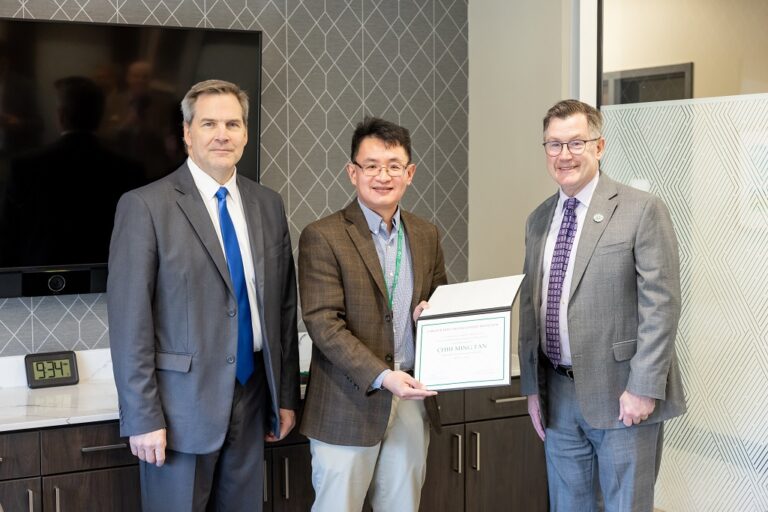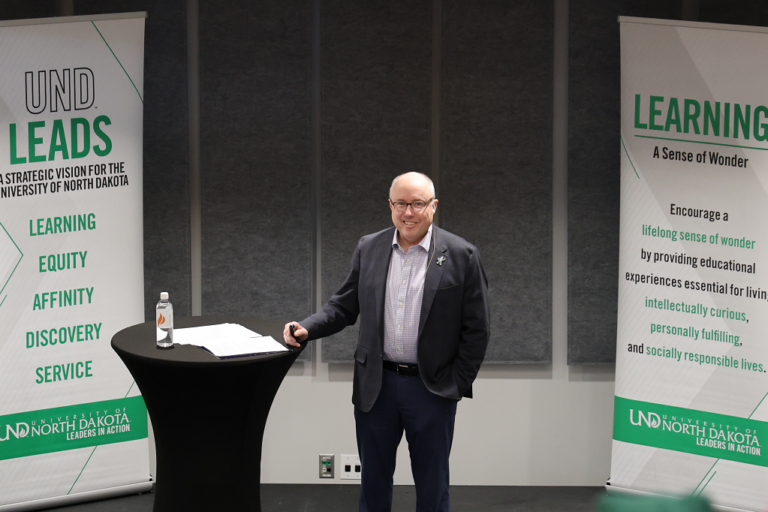Partnering with tribes in exploring the past
Kansas biological anthropologist Jennifer Raff advocates for research built on respect for peoples, cultures

Jennifer Raff certainly practices what she preaches.
While her own institution, the University of Kansas (KU), is among many finally realizing the importance of repatriation, after years of collecting, studying and storing human ancestors — like ancient trophies — in museums and other repositories, Raff is denouncing that past and advocating for a better way.

Raff, a renowned biological anthropologist and author of the new book Origin: A Genetic History of the Americas (2022), brought her message to the University of North Dakota on Thursday, Nov. 3, for this year’s Biology Wheeler Lecture Series. She gave two talks: a technical dive into the role of genomes — complex biological puzzle pieces — in reconstructing the histories of the Americas’ earliest peoples; and another presentation focused more on ethical challenges and considerations inherent in her field.
It was not lost on Raff, who is affiliated with KU’s Indigenous Studies Department, that UND is undergoing repatriation questions of its own after the recent discoveries of dozens of ancestors in various locations on campus. She has offered up her assistance to UND should it be needed.
As she does before all her talks, Raff asked her UND audience to be mindful that they were on the traditional lands of the Pembina and Red Lake Bands of Ojibwe and Dakota Oyate. She added that her book was primarily written on the KU campus, which sits on homelands of the Kaw Tribe, also known as the Kansa, and the Osage Nations.
She also announced that she intended to donate a portion of her Wheeler Lecture honorarium to a Native American student group at UND.
“I am a researcher who tries not to just speak the words of land acknowledgement but to actually return tangible benefits to the lands and the communities with whom we work and with whom we collaborate,” Raff said.
Raff emphasized that her research is informed by a foundation of Indigenous and non-Indigenous scholars, and is steeped in respect for the histories and peoples, both ancestors and descendants, she studies. One small example of this adherence to dignity and respect is the fact that she doesn’t use any photographs of human remains in her public presentations – only reconstructions.
Raff says it’s not the easiest or most efficient approach, but she wouldn’t have it any other way.
“The better way to do it … is to cede control over projects to the tribes and ask them how it should be done,” Raff said. “And actually listen to them; listen to their responses.”
Raff’s respect extends to the oral stories and traditions embedded within the cultures of the Americas’ Native populations. She puts such knowledge and histories, passed down from generation to generation, on par with the science of genetics practiced in the laboratory.
“These are all valid, important ways of understanding the past, and they should all be respected,” she said.
About the Biology Wheeler Lecture Series
Raff’s Wheeler talks were sponsored by the George and Jeanette Wheeler Distinguished Lecture Endowment and the Epigenetics COBRE (Centers of Biomedical Research Excellence) grant, administered by the UND School of Medicine & Health Sciences.
The lecture series is named for George Wheeler, a celebrated entomologist who specialized in ants and who was chair of UND’s Biology Department for 37 years (1926-67).


